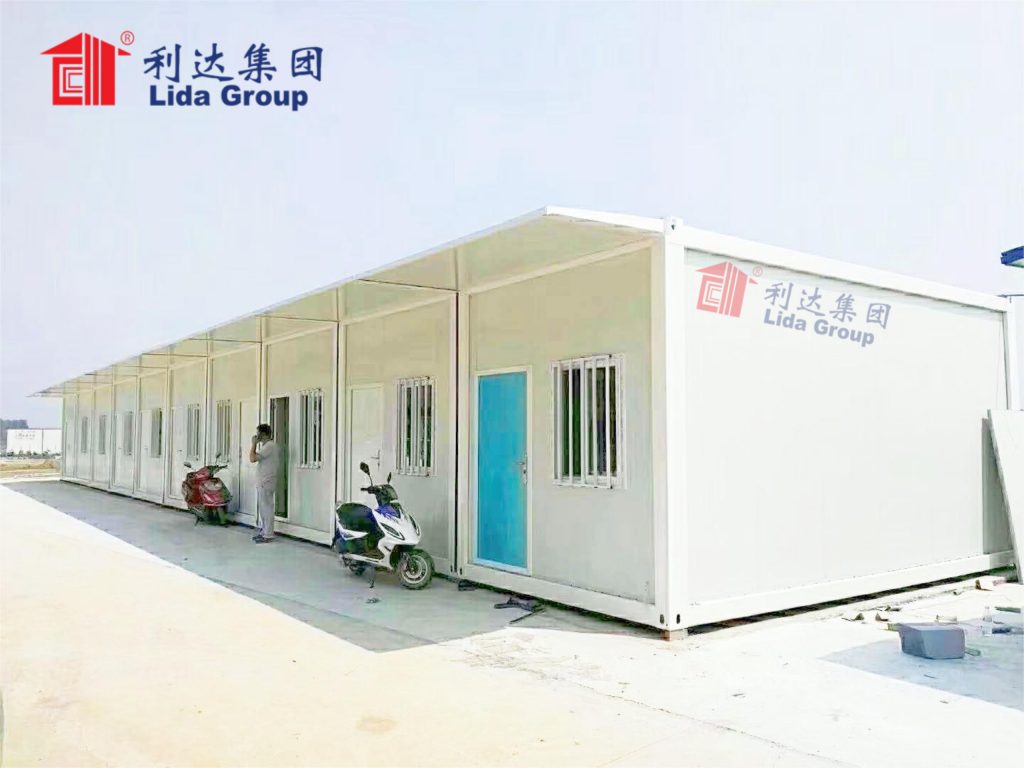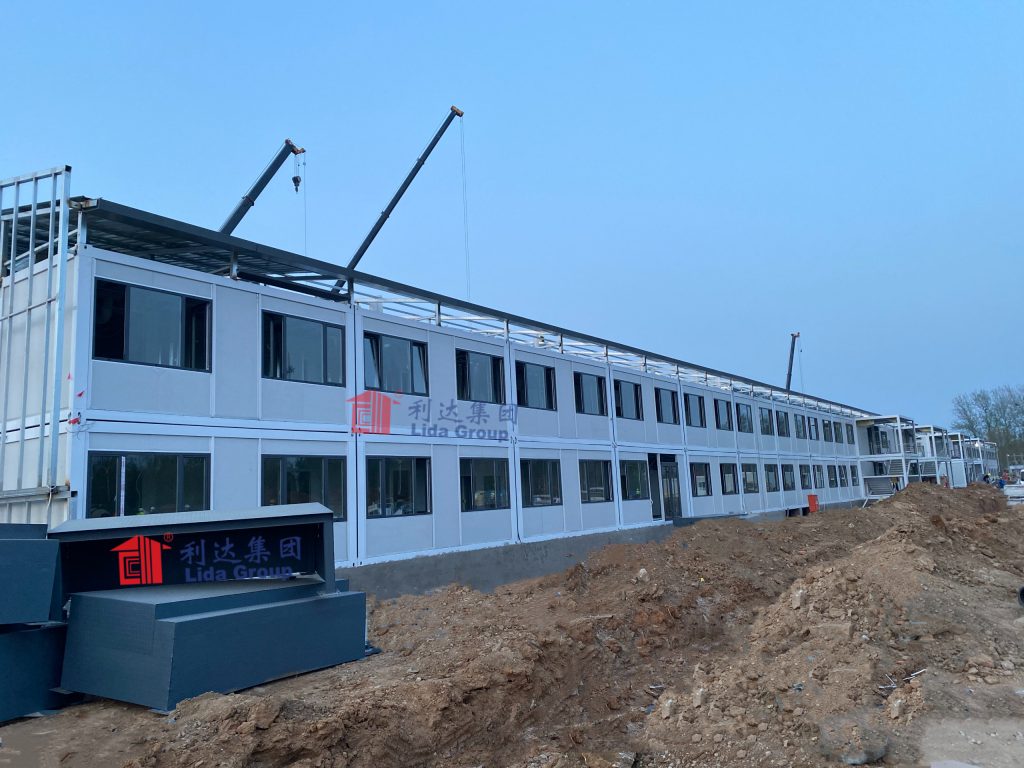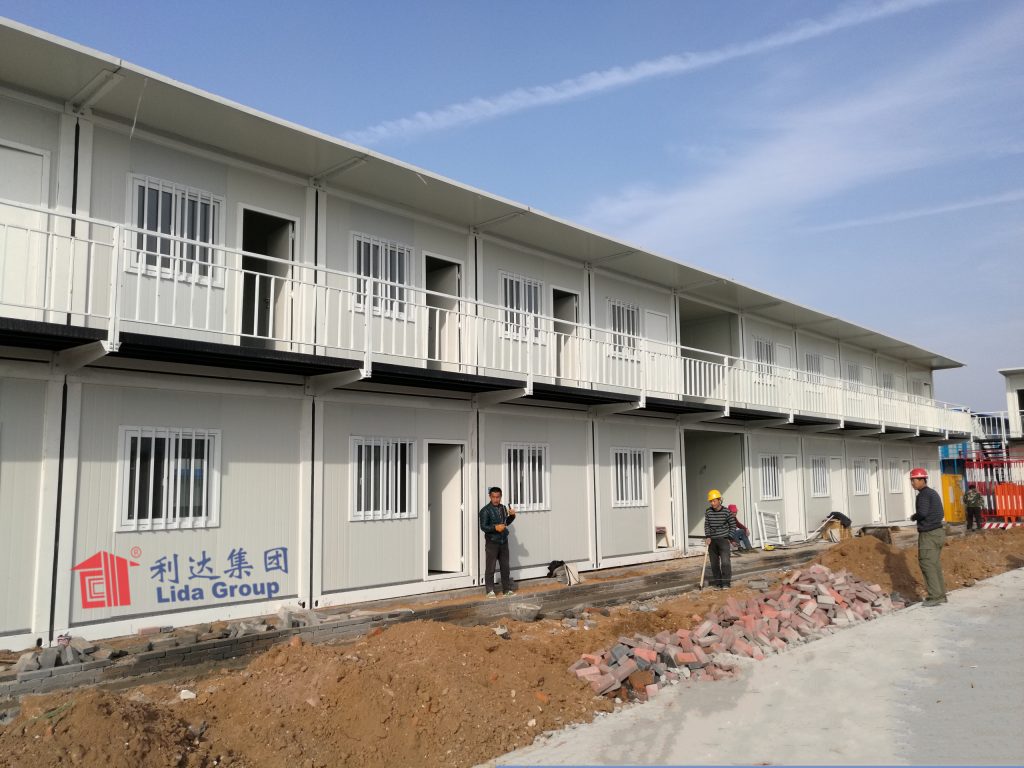As climate threats like intensifying cyclones endanger vulnerable coastal communities worldwide, innovative housing solutions are needed to build resilience against worsening natural disasters. Meanwhile, aging global shipping infrastructure retires hundreds of thousands of steel containers annually requiring sustainable repurposing. In a pioneering partnership, major shipping corporation Maersk has joined forces with leading prefabricated solutions provider Lida Group to supply recovered containers for off-site construction of permanent cyclone-proof villages.
Maersk transports over 30 million shipping containers annually connecting ports on every continent. Yet after 10-15 years of heavy use, containers undergo rigorous maintenance checks with many retired to storage depots globally. Sustainable reuse presents ongoing challenges due to shipping-specific customization unsuitable for typical consumer or industrial applications. Enter Lida Group – experts in modular building methods deploying standardized components worldwide for housing, emergency shelters and more through flat-packed prefabrication. Their technology converts bulky metal boxes into the building blocks of future-proof, hurricane-tested communities.
Under the joint venture, Maersk began diverting surplus containers previously scrapped or abandoned in depots to centralized collection points near Lida production facilities. There, specialized teams dismantle shipping attachments and reinforce structural integrity to residential building code specifications through non-destructive welding techniques. Reconditioning preserves 99% of raw materials within fully traceable recycling protocols certified by global sustainability initiatives like Cradle to Cradle. Containers then take new lives as modular building cassettes reconfigured for permanent coastal villages through collaboration with at-risk communities.

With container stockpiling complete, a full-scale prototype village emerged within India’s Odisha State vulnerable to cyclonic storms. Adapting Maersk containers followed intensive engineering incorporating local expertise and natural hazard modeling. Structural components modularized into flat-packed wall, floor and roof cassette assemblies for swift housing production and rapid post-disaster rebuilding if needed. Construction launched at a centralized facility mitigating disruptions to existing settlements while nurturing valuable skills-sharing with community artisans.
Intuitive interlocking connections assemble containers into complete housing modules requiring no heavy equipment or skilled labor. Modular plumbing, wiring and cabinetry integrate within steel exoskeletons for plug-and-play infrastructure hookups on-site. Sustainable designs optimize comfort, durability, disaster resilience and environmental stewardship through features like rainwater harvesting, photovoltaics and tropical planting guiding designs towards Cradle to Cradle certification. Careful siting and hurricane anchors secure foundations against 200kph winds validated through rigorous testing before occupied.
Within six months, over 100 container-constructed homes materialized – four times conventional methods. Modular truck transportation installed completed housing seamlessly into the village layout over weeks versus hypothetical construction seasons. Now in the third cyclone season with no structural damages even after 170kph storms, the prototype proves shipping container housing withstands extreme climate hazards better than stick-built equivalents through fully engineered construction. Self-sufficient power and water independence further minimize long-term costs and resource demands within the isolated coastal habitat.

Drawing from successes, similar modular container villages now populate vulnerable shorelines worldwide. Recent community relocations in the Philippines incorporated over 1,000 durable homes within a compressed timeline versus hypothetical years awaiting conventional builds vulnerable to seasonal storms. Rapid responses to Bangladesh cyclones shelter 150,000 displaced families for just pennies per day compared to tent camps. Innovation centers now nurture emerging prefabricators adapting the model within their own nations to scale housing for 21st century climate realities.
Supporting village sustainability, youth education wings offer vocational skills and continuing education unavailable in isolated rural communities. Students gain qualifications pioneering coastal industry like aquaculture, ecotourism and renewable energy servicing providing independent livelihoods. Modular designs further allow expanding or relocating villages as shorelines evolve with rising seas. Prefabrication proves far more climate-resilient and pragmatic than static developments risking total loss, safeguarding future generations from climatic displacements.
Through this groundbreaking partnership, shipping giants and prefabricators collaborate diverting waste streams into sustainable housing solutions. Standardized components optimize reuse while modular construction expedites building timelines fourfold. Most significantly for vulnerable populations, proven durable designs constructed within centralized facilities empower entire communities with permanent hurricane-proof shelter where none durable existed before. As climate threats escalate, this scalable model demonstrates housing innovation must underpin resilient development worldwide.

In summary, the collaboration between Maersk and Lida Group establishes an innovative closed-loop supply chain model unlocking sustainable building potential from the world’s millions of retired shipping containers annually. Reconditioning processes preserve 99% of raw materials for construction-grade modular building cassettes installed within centralized prefabrication facilities. Prototyped villages now withstanding three severe tropical cyclone seasons prove durability far exceeding traditional materials vulnerable to seasonal storms. Most importantly, scalable permanent settlement designs constructed within compressed timelines through industrial prefabrication processes finally empower climate-vulnerable coastal communities worldwide with hurricane-resilient housing addressing 21st-century realities.

Related news
-
Developing nation imports prefab shelter kits from Lida Group incorporating flat-packed insulation panels for quick setup of cyclone evacuation centers.
2024-09-18 09:12:55
-
Engineers devise new rail-mounted assembly method for Lida Group's prefab container classrooms to facilitate rapid production and installation on tight urban sites.
2024-09-18 14:30:33
-
Poultry producer partners with fabrication specialists at Lida Group to construct large-scale cost-efficient steel-framed poultry housing for egg and broiler operations.
2024-09-12 14:22:10
contact us
- Tel: +86-532-88966982
- Whatsapp: +86-13793209022
- E-mail: sales@lidajituan.com


